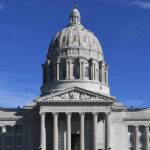The Environmental Protection Agency (EPA) has recently announced that it plans to rescind a crucial reporting rule termed the Greenhouse Gas Reporting Program (GHGRP). This program, established in 2009, requires over 8,000 industrial facilities, including power plants, oil refineries, and various manufacturing hubs, to report the quantities of certain greenhouse gases they emit—specifically methane, carbon dioxide, and nitrous oxide. These gases are known contributors to global warming and have significant impacts on the environment.
The announcement was made public through a formal news release distributed by the EPA. The news release outlined that ending this reporting requirement could potentially save American businesses approximately $2.4 billion in compliance costs. EPA Administrator Lee Zeldin highlighted this point, asserting that the financial relief would aid in streamlining operations and reduce what he described as unnecessary regulatory burdens on American energy sectors.
Administrator Zeldin further developed his argument by stating, “Unlike other mandatory information collections under the Clean Air Act (CAA), the GHGRP is not directly related to potential regulation and does not materially impact the improvement of human health and the environment.” His stance suggests a significant policy shift toward deregulation in the environmental sector, which he believes will bolster EPA’s core mission of protecting human health and the environment by cutting red tape and unleashing American energy capacities.
The proposal to end the GHGRP comes with a few exceptions. Certain fossil fuel facilities would still need to report their emissions, including some natural gas and offshore oil operations, as mandated by the Inflation Reduction Act passed during the Biden administration. However, the EPA has proposed postponing the implementation of these data collection requirements until the year 2034, nearly a decade from now.
Despite these changes being proposed under the auspices of economic benefit and regulatory streamlining, they have sparked significant concern among various stakeholders. Environmental specialists, former government officials, health experts, and advocacy groups have voiced serious apprehensions about the implications of such a decision.
Joseph Goffman, a former assistant administrator for the EPA’s Office of Air and Radiation during the Biden administration, expressed dismay at the decision, stating, “Cutting the Greenhouse Gas Reporting Program blinds Americans to the facts about climate pollution. Without it, policymakers, businesses, and communities cannot make sound decisions on how to reduce emissions and protect public health.” Now affiliated with the Environmental Protection Network, Goffman underscores that transparency in environmental reporting is crucial for informed decision-making at all levels.
Moreover, health experts argue there is more at stake than procedural or economic concerns. Will Barrett from the American Lung Association emphasized the human health implications tied to the reporting of greenhouse gases, correlating unchecked emissions with increased pollution, aggravated health emergencies, and extreme climatic events which can lead to fatalities. By potentially terminating the GHGRP, the EPA could be disregarding novel insights into how emissions drive climate patterns and disproportionately impact vulnerable populations.
Critics also draw parallels between this proposed regulatory rollback with similar trends observed during the Trump administration which saw reduced support for climate science and research. The diminished capacity for detailed climate studies hampers the ability to forecast economic and societal impacts linked to environmental degradation.
As the EPA moves forward with its plan, a public commenting period will be instituted, allowing citizens and stakeholders to express their views and concerns regarding the proposed end to the GHGRP. This process is crucial as it offers a democratic avenue for public engagement on environmental issues that impact the wider community.
In contemplating the broader implications of such regulatory changes, it becomes evident that this decision could represent a consequential shift in how environmental data is collected, reported, and utilized in the United States. The potential cessation of the GHGRP might not only impact transparency and accountability in environmental matters but may also influence the country’s ability to meet domestic and international climate goals.
While the decision aims to reduce regulatory burdens and purportedly foster economic growth by letting businesses prioritize resource allocation elsewhere, the long-term environmental, health, and societal costs must be thoroughly considered. This decision stands at a critical juncture, weighing immediate economic benefits against sustainable environmental stewardship and public health protection.
As the public commenting period unfolds, it will be paramount for all voices—businesses, environmental groups, health advocates, and the general public—to participate actively. The outcome of this discourse will inevitably shape the EPA’s approach to environmental regulation and enforcement in the coming years, determining how effectively the United States can address the pressing challenges posed by climate change and industrial pollution.









